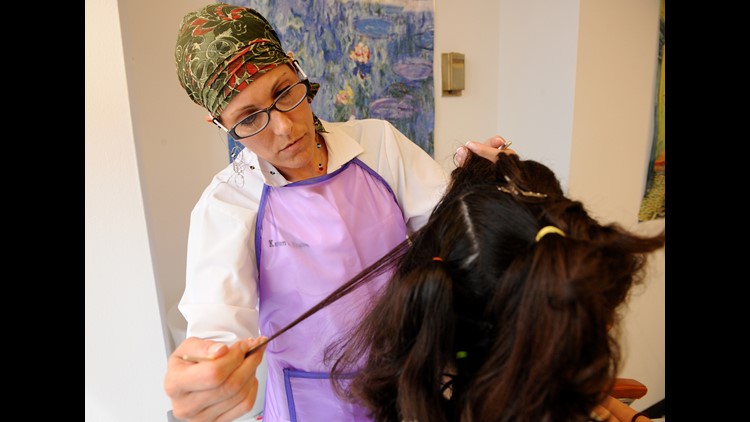Many children head back to school this week amid growing concern about super lice, or populations of the small parasitic bugs that have mutated and are now resistant to traditional over-the-counter treatment.
USA TODAY Network looks at what you need to know about these mutated bugs.
What are super lice?
Super lice, like regular ones, live among human hairs and survive by drawing small amounts of blood from the scalp.
They look and behave the same as regular head lice, but so-called super lice are resistant to pyrethroids. Pyrethroids are the family of insecticides used to kill lice in common over-the-counter treatment products.
A recent study out of Southern Illinois University Edwardsville found that 25 states in the U.S. have confirmed populations of super lice.
"What we found was that 104 out of the 109 lice populations we tested had high levels of gene mutations, which have been linked to resistance to pyrethroids," Kyong Yoon, a professor at SIUE, said in a statement from the American Chemical Society about the study.
This is not the first time researchers have found mutated lice in the U.S.
In March 2014, the University of Massachusetts Amherst published a study that looked at the genes of lice from 32 sites in the U.S. and Canada. They found that 99.6% of those tested in 2007-09 were genetically resistant to the chemicals most frequently used to treat them.
"In the U.K. and Europe, they don't even use pyrethroids anymore. Virtually everyone but the United States and Canada has given up using these over-the-counter products," John Clark, a professor of environmental toxicology and chemistry who worked on the research, told the Detroit Free Press at the time.
What's the best way to treat lice?
The American Academy of Pediatrics recommends caregivers use over-the-counter medications containing 1% permethrin or pyrethrins (pyrethroids) unless a resistance to those methods has already been confirmed in the area.
"After applying the product according to the manufacturer's instructions, parents should follow with nit removal and wet combing," the AAP recommends in a statement on its website. "The treatment should be reapplied at day 9, and if needed, at day 18."
Parents should also consult a doctor. There are some prescriptions that may work better for resistant cases than over-the-counter treatments, according to Yoon and Clark. Medicines such as spinosad or topical ivermectin may be prescribed, according to the APP.
But whatever treatment is used, it's important to follow the instructions exactly.
"Not leaving the shampoo on as long as it says ... could affect your treatment," Connie Cronley, an epidemiology nurse with the Knox County Health Department, told WBIR-TV.
How do I avoid getting lice -- super or otherwise?
Because lice spreads so easily in schools, it's hard to prevent. But the AAP recommends encouraging children not to share hats or combs or other items that come in contact with hair. "Head lice are spread most commonly by direct contact with the hair of an infested person," according to the Centers for Disease Control and Prevention.
Experts also advise that parents regularly check their children for head lice even if they aren't complaining of itching. Only 50% of people have an allergy to the saliva of a louse, which means only half of people with lice itch, according to Shirley C. Gordon, the director of the Head Lice Treatment and Prevention Project at Florida Atlantic University.
While lice are irritating and uncomfortable, the good news is that they don't spread disease, according to the CDC.
Contributing: Rachel Wittel, WBIR-TV; Kristen Jordan Shamus, Detroit Free Press



